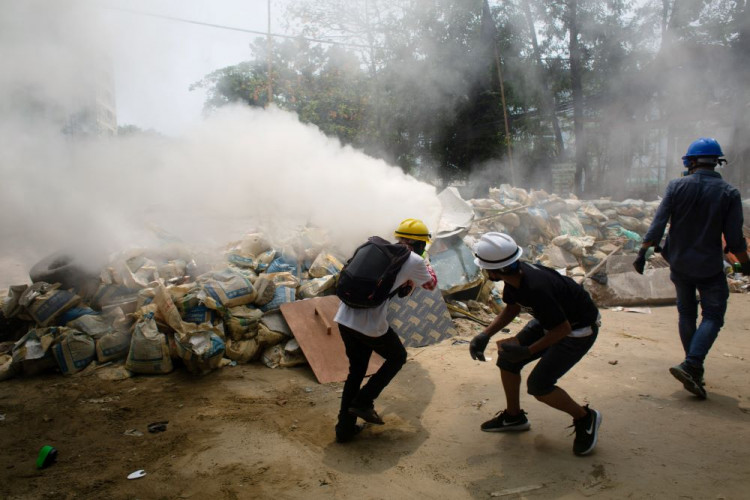Amid rising tensions near its border with China, Myanmar's military is grappling to restore calm following a series of coordinated assaults led by a coalition of ethnic minority factions against junta forces. These uprisings, coming from the united "three brotherhood alliance" representing factions in both Shan and Rakhine states, mark a significant escalation in the ongoing crisis.
This collaboration of ethnic minority armies articulated their mission quite clearly, saying, "We are dedicated to eradicating the oppressive military dictatorship, a shared aspiration of the entire Myanmar populace." This vocal declaration has garnered support from various groups opposing the junta's reign.
Early Friday reports indicated that the alliance successfully captured two military outposts. At this point, casualty figures remain undisclosed.
This surge in aggressive moves follows closely on the heels of a tragic incident just a fortnight ago. An artillery strike, purportedly launched by the military, hit a refugee camp bordering China in the adjacent Kachin state, leaving at least 29 civilians dead. The military, however, has disavowed any responsibility for the strike.
China, one of the select nations still engaging with Myanmar's military leaders, has expressed increasing concern over these border conflicts and their ramifications on bilateral trade. Myanmar's internal struggles, apart from causing humanitarian distress, are now inadvertently impacting its relationship with a key trade ally.
On October 27, China's Foreign Ministry spokesperson Mao Ning stated that China is closely monitoring the ongoing conflict and urges relevant parties to cease hostilities and pursue resolution through dialogue and consultation. She underscored the importance of addressing differences peacefully to prevent further escalation and called for concrete and effective measures to ensure the security and stability of the China-Myanmar border.
Attempting to allay concerns, Zaw Min Tun, spokesperson for Myanmar's ruling military council, communicated to local media outlets, "We are trying to control the situation." He elaborated, "We can control the towns but we are still clearing routes."
The backdrop to this conflict is the protracted political upheaval that Myanmar has faced since the 2021 military coup. The military's subsequent aggressive maneuvers provoked a countrywide resistance. This resistance movement, fortified by the backing of numerous ethnic minority factions, poses a formidable challenge to the junta's dominance.
The "three brotherhood alliance" has framed their recent operations as a necessary action to "respond resolutely to ongoing artillery attacks and air strikes" and to safeguard their territories and the civilians within.





